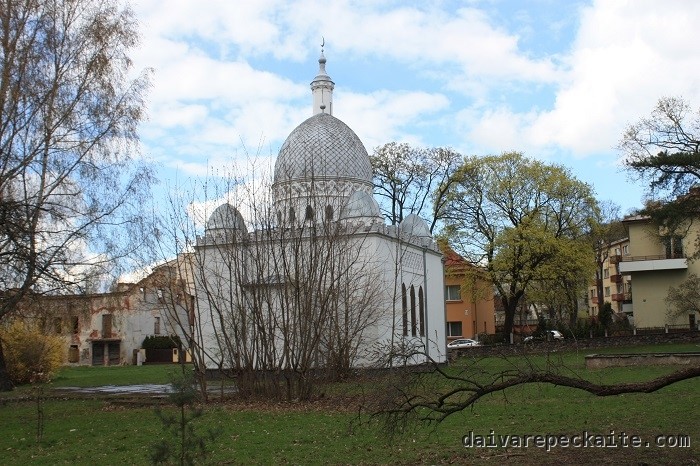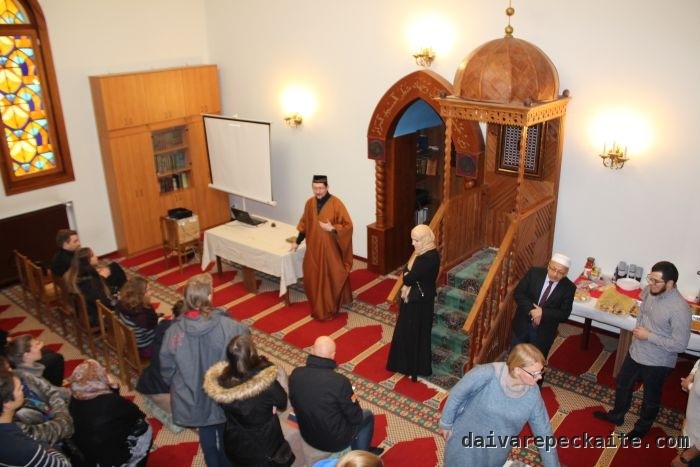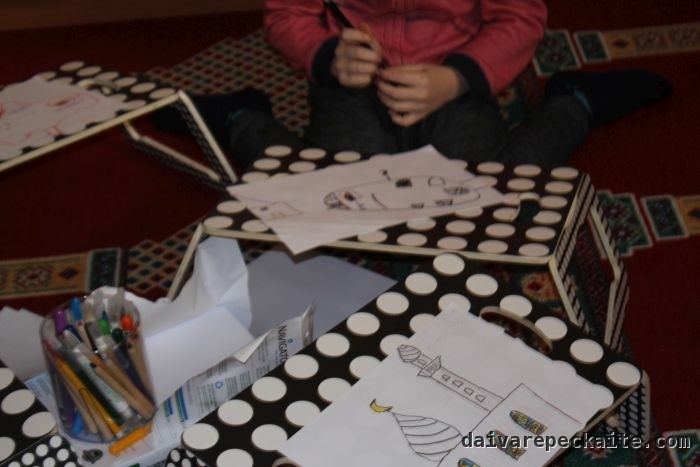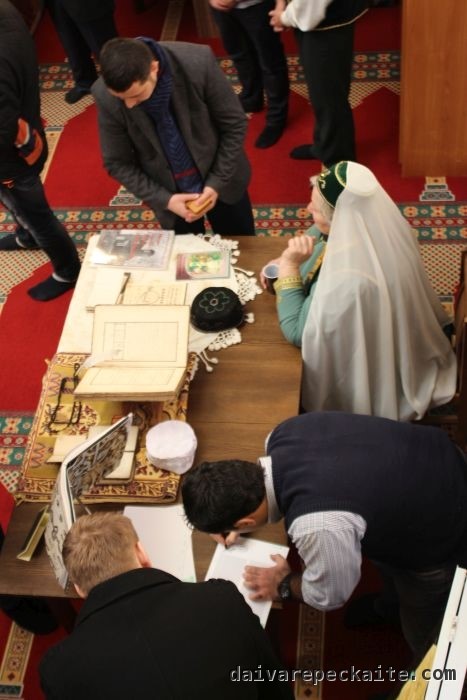
THE VOICE OF INTERNATIONAL LITHUANIA
|
VilNews has its own Google archive! Type a word in the above search box to find any article.
You can also follow us on Facebook. We have two different pages. Click to open and join.
|
an important contact point for old
and new Muslim communities

By Daiva Repečkaitė
http://www.daivarepeckaite.com/en
The community of Kaunas mosque provided an opportunity for anyone interested to go inside the unique Tatar mosque of Kaunas, to see a Muslim prayer, look around and enjoy food from various countries and cultures. The mosque has become an important contact point for old and new Muslim communities, the latter consisting of foreign students, workers, spouses of Lithuanians, expats and local converts. The 3000-strong Tatar community has been around for centuries and is can help their sisters and brothers in faith with accessing Lithuanian institutions, networking and, most importantly, feeling at home in this relatively homogeneous European society. Other functioning mosques are in distant small towns. Vilnius doesn′t have a mosque, and the current mayor, Remigijus Šimašius (liberal) made it clear that he will not do anything in his power to help establish one, even though, when Syrian and Iraqi refugees are resettled according to the EU scheme next year, the Muslim community in Vilnius will grow. There is not a single Shia mosque (most Shia Muslims are apparently from Azerbaijan), but Shia believers can attend Sunni services.
The mosque has a short Turkish-style minaret, from which the prayer is never played. It has several domes and two floors – one for men and one for women. It used to be decorated inside, but wall paintings and other decorations didn′t survive turbulent times. At least it has wonderful carpets, for which the Lithuanian word (kilimai) comes from Persian (kilim).
Ethnic Tatars have been around since the 14th century. In the Soviet times, they were joined by Muslim migrants from other Soviet republics, but they could not openly practice their religion. The mosque, opened in 1933 in a plot of land dedicated to cemeteries and religious buildings of various religious communities, was also confiscated during WW2. According to the mufti, Romas Jakubauskas, the mosque was used as a police residence building and a practicing venue for circus artists. There was a plan to open a museum of oriental art there, but it was never implemented. In the 1990s, the newly independent Lithuania started returning confiscated land and property to religious communities, and the Muslim community got its mosque back in 1991.

Obviously, there are no religious schools for imams to study, and apparently most Tatars prefer to undertake their religious studies in Turkey. With new technologies and networking opportunities, Tatars communicate with co-ethnics around the world, and some of them eagerly connect to other Turkic cultures.
The mufti explained that in his tradition, he and imams are teachers rather than religious authorities. One gains religious authority by studying Islamic teachings, and is then allowed to teach others.
During the open day, visitors could listen to an azam prayer, observe a community prayer, and ask various questions. Having climbed up to the women′s section, women could have their hands painted with henna by a young Lithuanian-Egyptian artist.
Children were invited to draw the mosque. In this drawing it looks like a spaceship.

People are getting their names written in Arabic and looking at heritage objects. This table is a joint Tatar-Syrian project.

Tatars in Lithuania are famous for their poppy-seed cake. Visitors could taste a fine sample of such cakes, as well as salads and desserts from Turkey, Syria and other countries.
This open day was a rare opportunity for residents and guests of Kaunas to get cozy with heavily stereotyped ethnic minority cultures. At the face of it, I am very tempted to say that schools and universities should initiate such open days, but at the same time, I totally understand how busy the Muslim community representatives are today. The Tatar community has been halved since 1989 due to emigration and assimilation, and cultural differences within the Muslim community are already a challenge. Various media constantly ask Tatar activists to comment on Crimea and on anything Islam-related. The dominant narrative is that Tatars are patriotic and ‘integrated’ citizens (they have proved their loyalty centuries ago, as recruits in the army of the Grand Duchy), sometimes even pitting them against the Polish minority, which demands more cultural rights. Lithuanian Tatars are constantly pressured to serve as a model minority and model Muslims, who balance out negative stereotypes, in mainstream media. I can imagine that this is tiring. For now, they are coping well.
- Bookmark :
- Digg
- del.icio.us
- Stumbleupon
- Redit it
VilNews e-magazine is published in Vilnius, Lithuania. Editor-in-Chief: Mr. Aage Myhre. Inquires to the editors: editor@VilNews.com.
Code of Ethics: See Section 2 – about VilNews. VilNews is not responsible for content on external links/web pages.
HOW TO ADVERTISE IN VILNEWS.
All content is copyrighted © 2011. UAB ‘VilNews’.

 Click on the buttons to open and read each of VilNews' 18 sub-sections
Click on the buttons to open and read each of VilNews' 18 sub-sections 



Great
Thanks for sharing, hope that it can be a goodness for us all. be a modest muslimah , Keep istiqomah. ^^
As they were the personal guard of the Grand Duchy, no problem of integration ! Nowadays some of them are very good medical doctors !